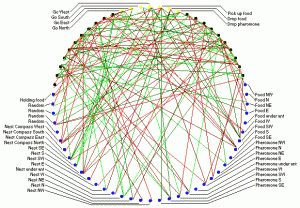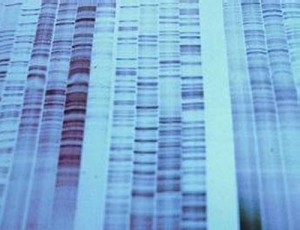

“He who destroys a thing, controls a thing.” Dune
“Adaption is protection. Adaption is incitement to violence.” The Things, pg.3
Starting with the first life forms on Earth, everything has evolved. Evolutionary processes gives rise to diverse species and individual organisms. Adaptions can exist from a genetic change, developmental adjustment, acclimatization, and cultural practice and technology. In our generation, technology has played a huge role in the way in which we evolve such that the social media aspect has rapidly forced us to become advanced to conditions where we may not feel most comfortable (leading to violence). However, as we have evolved over the past 3.8 billion years, we have also given way to the extent of what our environment can take on. We have challenged the ability for survival in many ways, whether in being ourselves, our environment, or the reactions between both. Our climate has become geologically hostile to the humans in which occupy it. We have done this to ourselves. This ties back into the quote from The Things in that we wont feel protected unless we aren’t violent. In a sense, this is counteracting the definition of what evolution is, and in turn leading to unstable conditions. What can stop this violence to allow for evolution? Humans are unaware of what is preventing them to further ‘control’ their world. Yet do humans have to have full control or should we adapt to the existing conditions to further promote advancements? What needs to be done/built in order for the evolution process to succeed and continue in the right direction? Can we learn and ‘evolve’ from existing species in order to save what has become of our surroundings? Can “swarm-logic” play a role?
“They think locally and act locally; but their collective action produces global behavior.” Emergence, Johnson pg 76
Directly relating to the adaptive phenomena, these ants work together and learn from each other to create what is best for their living conditions, as well as using gestures and techniques in order to project what needs to be done. Even though evolution takes place over a long period of time, this idea of “swarm logic” insists that evolution is happening once and without neighbors, there would be no such thing as swarm-logic and “colonists would be just a senseless assemblage of individual organisms.” I believe that there needs to be a sense of cooperation and learning to emerge in order for evolution to take place and become effective. How can existing land forms and/or structures/architecture allow evolution to occur? Can many different ‘species’ live and work together to promote evolution, rather then the violence in which we are bringing among ourselves today? or Are they preventing further advancement to happen?
This may also relate to what happens within the human body over the course of the day. While million of cells reproduce and die, they have the ability to pay close attention to regulations and the necessities of life; each neighboring cell interact with each other to produce ‘ideal’ conditions. While we all start life as a single-celled organism, we end our developmental cycle composed up of nearly two hundred variations, all intricately connected to each other. “Cells self-organize into more complicated structure by learning from their neighbors.” What promotes or prevents these characteristics within the human body and/or the world at large? How do we know if the DNA of the human body is brought up the correct way to live the healthiest lifestyle? What additives are needed in order for this cooperation between cells to exist? Does the adaptation of its (cells) surroundings, being the body at large or the world it lives in, matter? To what extent? How does the link between systems work together to allow for positive feedback?

http://www.ocf.berkeley.edu/~edy/genome/sequencing.html